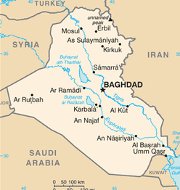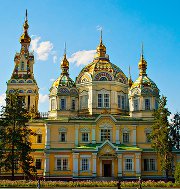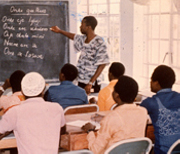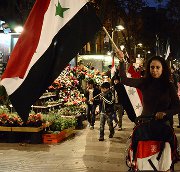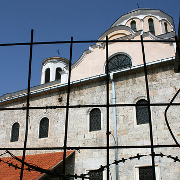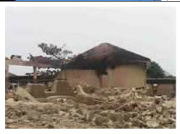 |
| (Photos courtesy VOM Nigeria) |
Nigeria (MNN) ― There's a reason the state of emergency exists in Nigeria. In the wake of an ultimatum from the Boko Haram, there were two bomb blasts in northeastern Nigerian cities, authorities said Thursday.
The state of emergency gives security forces control of the areas under the declaration, and closes some of the borders with Niger, Chad, and Cameroon.
Boko Haram is Hausa for "Western education is a sin." The elusive group has ties to both the Taliban and al Qaeda. Known for pushing a national Sharia law, they warned all Christians living in the North to leave or risk being killed.
Todd Nettleton, a spokesman for the Voice of the Martyrs USA, says, "It's an incredible threat to religious liberty, and it's a threat to Christians who live in that part of Nigeria."
Many feel like they're in a deathtrap. Nettleton explains, "For the Christians there, it's obviously a state of fear. They have said, 'How can we leave? This is our home.'" The Boko Haram has said, 'You go to the South with the rest of the Christians. We want northern Nigeria to be all Muslim.'"
As the deadline to vacate expired, the attacks began, although there were no casualties. President Goodluck Jonathan declared the state of emergency last weekend in 15 parts of the country hard hit by violence blamed on the Boko Haram.
"I don't think it's a surprise because Boko Haram has made a target of Christians. They've made a target of churches, as well as targeting the government--targeting police stations, and military establishments and recently, a United Nations building."
Simply put, recent attacks were a warning shot across the bow. "In previous situations in northern Nigeria, there's been a push toward Sharia law. But it was said, 'This won't apply to the Christians. This is only for Muslims.' Boko Haram is saying, 'We only want Muslims in northern Nigeria, and Sharia law will apply to everybody.'"
Human rights activists are doubtful that the state of emergency and troops would improve the situation. Past history shows that military presence has done little to reduce violence. Nettleton agrees. "There are Christians who don't trust the military to really be a protector for them and to insure the peace of northern Nigeria. There have been cases where the military has stood by while attacks went on. There have been other cases where people in military uniforms were a part of the attack."
Christian leaders have demanded a stronger response to the attacks from the government and the Muslim community. According to Open Doors, more than 300 Christians were martyred last year in Nigeria, though the actual number is believed to be double or triple that number.
Since 2009, the extreme Islamic group Boko Haram has destroyed more than 50 churches and killed 10 pastors in Nigeria. "Pray for protection. Obviously, it's a very difficult situation. They face danger literally on a daily basis. The fact now that this ultimatum has been delivered: 'Leave the area or else,' the danger is only going to go up."
In the meantime, Nettleton says, the good news is that the Gospel is still moving forward. "One of the significant sources of that outreach is Muslims who have come to Christ. They understand the hopelessness of Islam. They can speak directly to those needs and to those heartfelt things because they, themselves, were Muslims."
With all the violence though, Nettleton notes, "What does this mean for Gospel work? Obviously, it raises the stakes; it raises the danger level for Christians in that part of Nigeria, and it makes their work more difficult."
Sudan and Nigeria were the countries which jumped the most on the 2012 Open Doors' World Watch list; Sudan climbed 19 spots from No. 35 to 16 and Nigeria from 23 to 13.
Check our Featured Links section for details on the Voice of the Martyrs' work.
